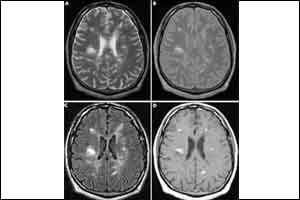- Home
- Editorial
- News
- Practice Guidelines
- Anesthesiology Guidelines
- Cancer Guidelines
- Cardiac Sciences Guidelines
- Critical Care Guidelines
- Dentistry Guidelines
- Dermatology Guidelines
- Diabetes and Endo Guidelines
- Diagnostics Guidelines
- ENT Guidelines
- Featured Practice Guidelines
- Gastroenterology Guidelines
- Geriatrics Guidelines
- Medicine Guidelines
- Nephrology Guidelines
- Neurosciences Guidelines
- Obs and Gynae Guidelines
- Ophthalmology Guidelines
- Orthopaedics Guidelines
- Paediatrics Guidelines
- Psychiatry Guidelines
- Pulmonology Guidelines
- Radiology Guidelines
- Surgery Guidelines
- Urology Guidelines
A case of rare encephalitis mimicking psychiatric illness

Following a tough football game, Jesus Martinez wanted to take off his pads, go home and relax. His last memories are taking a shower and eating dinner. His family recounts the rest—him being found minutes later on the floor incoherent and his body convulsing violently.
He was immediately taken to the hospital where staff first suspected he was under the influence of drugs—he wasn’t. After a few hours, his symptoms subsided, so he was sent home. The next days and weeks, he suffered extreme behavior and huge mood swings from happiness to anger—at one time taking off his clothes and cursing and threatening to fight his mom and dad.
“The person that went home with us after the first hospital visit was not my son,” recalls his mother, Josefina Huerta. “We knew something was wrong with him but didn’t know what. We knew it wasn’t drugs or alcohol.”
Today, the 24-year-old shows no outward signs of being comatose, hooked up to respirators and unable to talk or move his limbs for nearly a year and a half. Since his last hospitalization in 2013 and subsequent year-long recovery, he still can’t recall anything since the game. Martinez suffered from anti-N-methyl D-aspartate receptor encephalitis, a rare, and sometimes, difficult disease to identify. If not treated properly, it can be life-threatening or leave sufferers with severe disabilities.
“The disease causes the body to make antibodies that interfere with the proper signaling of brain cells and body functions. Basically, our bodies are fighting our brain and causing these problems,” says Dr. Kalpalatha Guntupalli, chief, Section of Pulmonary, Critical Care and Sleep Medicine, Harris Health System’s Ben Taub Hospital, and endowed professor, Pulmonary Disorders, Baylor College of Medicine. “It’s a very unusual case of our immune system causing the problem.”
Because Martinez’ symptoms mimic those seen in psychiatric patients, drug abusers or disorders like epilepsy, a true diagnosis is hard to gauge. The disease affects the limbic part of the brain that controls functions like memory, learning, and emotions. It often causes symptoms of memory loss, seizures, confusion and altered behavior. Guntupalli says staff at Ben Taub Hospital see about 3-4 similar cases a year—mostly common among women. However, men of varying ages are susceptible.
Only a cerebral spinal fluid exam can determine the disorder. Unfortunately, not all physicians know to request one. The Ben Taub Hospital team that includes neurology, psychiatry, otolaryngology and nursing do. Because Martinez was hospitalized for a long time in the intensive care unit, many of the nurses seemingly adopted him and celebrated every step of his recovery.
“He became like a son to us all,” recalls Ardis Bush, MSN, RN, NEA-BC, CMSRN, director, Medicine Intensive Care Unit, Trauma, and Critical Care Services. “We celebrated his birthday and cried during his discharge. We still keep up with him, because we want to know he’s well.”
Guntupalli says treatment for patients sometimes require heavy rounds of chemotherapy and steroids to suppress the immune system’s ability to create antibodies.
A versatile player on the MacArthur (Houston) High School football squad, Martinez enjoyed the position of linebacker best because of being able to hit others. After his medical bout, Martinez missed most of his junior year and all of his senior year of high school. Fortunately, he was able to make it up and has since received his diploma. He’s even taken a year of community college and has plans to be a car mechanic. He currently works at a grocery store.
“Once his immune system was no longer making antibodies to these receptors, it gave his brain a chance to heal,” Guntupalli says of Martinez’s recovery. “Fortunately, his disease didn’t destroy any part of his brain. It just interrupted the signaling of brain cells. However, it can take the brain a really long time to reestablish its normal signaling and normal brain function.”
Hoping to determine the cause of his ailment, Martinez underwent numerous tests, including for the mosquito-borne encephalitis, but that was ruled out. Among many similar cases, the cause can be traced to the body’s immune system producing antibodies because of cancer (diagnosed or undiagnosed). However, Martinez had no cancer, and his cause remains a mystery.

Disclaimer: This site is primarily intended for healthcare professionals. Any content/information on this website does not replace the advice of medical and/or health professionals and should not be construed as medical/diagnostic advice/endorsement or prescription. Use of this site is subject to our terms of use, privacy policy, advertisement policy. © 2020 Minerva Medical Treatment Pvt Ltd